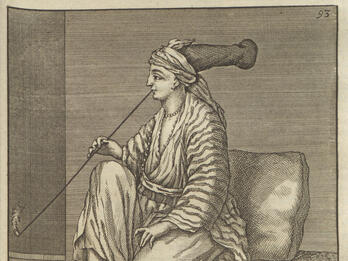Elisha ben Samuel
Aside from the fact that Elisha ben Samuel lived in Persia in the later seventeenth century, nothing is known about his life. Influenced by the Hebrew poetry of medieval Spain, Elisha composed Hebrew piyyutim (liturgical poems) and Judeo-Persian commentaries on hymns by Solomon Ibn Gabirol, including the latter’s Azharot. Elisha wrote a Judeo-Persian verse account of the war between the Maccabees and the Seleucids, ḥanukka-nāma (The Book of Hanukkah), but the surviving manuscripts of this work are all incomplete. His longest narrative verse work in Judeo-Persian, Shāhzada va Ṣuāfīā (The Prince and the Sufi, 1684) is the tale of a prince who becomes an ascetic. The work is based on Abraham Ibn Hasdai’s Hebrew text, Ben ha-melekh ve-ha-nazir, itself a retelling of the story of Buddha’s life. Elisha used the penname Rāghib, which means “the desirous one” in Judeo-Persian.


